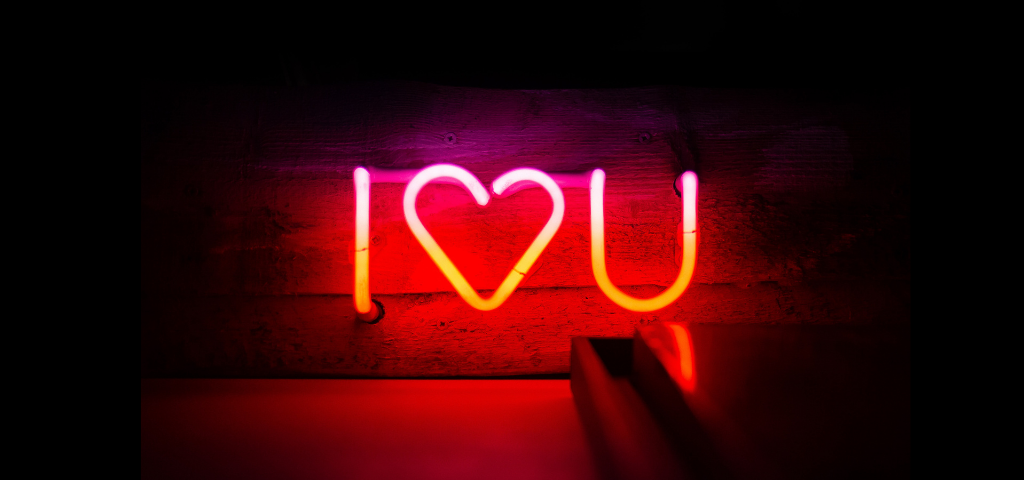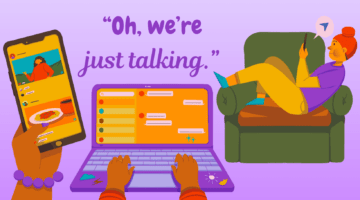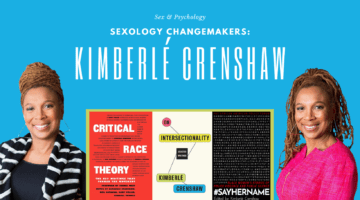How Would You Feel If Someone Said “I Love You” On The First Date?
February 14, 2022 by Justin Lehmiller
A lot of people seem to believe in the idea of “love at first sight.” For example, in studies of people who are currently in relationships, as many as 1 in 3 report that they fell in love with their partner the first time they met.
So what would you do if you were out on your very first date with a new person and they said they’d fallen in love with you? Would you see it as the end of the line, or perhaps as the start of true love?
We asked this question on a recent demographically representative US survey conducted by the Kinsey Institute and Lovehoney. This was a US Census-balanced survey of 2,000 American adults aged 18-45, weighted with respect to age, race/ethnicity, gender, household income, and geographic region. In addition to the main sample, we surveyed an additional 200 LGBTQ+ adults in order to ensure representation of sexual and gender diversity, yielding a total sample size of 2,200 Americans.
When we asked people whether they would consider it to be a “dealbreaker” if someone said “I love you” on the first date, participants were fairly split: 46% said it was a dealbreaker (i.e., they would call things off immediately), whereas 54% did not (i.e., they would at least be open to seeing where things go).
However, the results depended on people’s gender and sexual orientation:
- Women (55%) were actually far more likely than men (37%) to report that it would be a dealbreaker for someone to say “I love you” on the first date. Those with non-binary gender identities were somewhere in between (43%).
- LGBTQ+ folks (53%) were also more likely to consider this to be a dealbreaker than their cisgender, heterosexual counterparts (44%).
- If you break the data down further and look at LGBTQ+ men and women vs. heterosexual men and women, LGBTQ+ folks were about six percentage points more likely to say this was a dealbreaker than heterosexual folks across genders.
These findings are interesting in light of various societal stereotypes. For example, there’s a common stereotype of lesbian women as “bringing a U-Haul on the first date” and also a stereotype of heterosexual men as being “afraid of commitment.” But, contrary to these stereotypes, sexual minority women were the most likely to see someone saying “I love you” on the first date as a red flag, whereas heterosexual men were the least likely.
In addition to gender and sexual orientation, there was also an effect of age, such that younger folks were more likely to see this as a dealbreaker than older adults. Specifically:
- Among those aged 18-24, 53% said this was a dealbreaker.
- Among those aged 25-34, 48% said this was a dealbreaker.
- Among those aged 35-45, 39% said this was a dealbreaker.
In other words, the older people get, the less likely they are to see someone saying “I love you” on the first date as a red flag. This may be because, as we get older, we may be more cognizant of the fact that time is limited and, therefore, may be more open to pursuing potential opportunities for love.
However, there’s an interesting pattern when you look at gender and age together. Specifically, the numbers for men are pretty consistent across age groups. In other words, as men get older, their feelings about this being a dealbreaker don’t appear to change very much.
By contrast, for women, that’s where we do see a change: as women get older, they’re less likely to view this as a dealbreaker. Across all age groups in our survey, women were more likely than men to consider hearing “I love you” on the first date as a red flag, but the size of the gender difference decreased considerably with age.
Put another way, young women are showing the most selectivity and appear to be the least likely to want to rush into a long-term relationship.
There were also differences based on race/ethnicity, with Whites and Latinos being most likely to consider this a dealbreaker, and Asian Americans being least likely (and African Americans falling in-between).
What all of this tells us is that, while the idea of “love at first sight” is popular, confessing love on the first date is something that appears to turn a lot of people off. However, some people (especially young women) appear to be more turned off by it than others.
So if you find yourself having strong feelings about someone on the first date, that’s great—but proceed with caution when it comes to making declarations of love right out of the gate.
Want to learn more about Sex and Psychology? Click here for more from the blog or here to listen to the podcast. Follow Sex and Psychology on Facebook, Twitter (@JustinLehmiller), or Reddit to receive updates. You can also follow Dr. Lehmiller on YouTube and Instagram.
Image Source: Photo by Bruno Martins on Unsplash

Dr. Justin Lehmiller
Founder & Owner of Sex and PsychologyDr. Justin Lehmiller is a social psychologist and Research Fellow at The Kinsey Institute. He runs the Sex and Psychology blog and podcast and is author of the popular book Tell Me What You Want. Dr. Lehmiller is an award-winning educator, and a prolific researcher who has published more than 50 academic works.
Read full bio >


